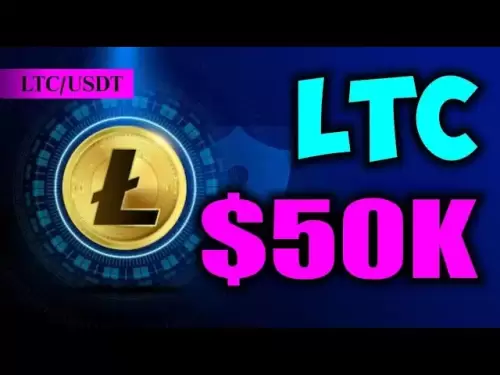-
 Bitcoin
Bitcoin $118000
-0.23% -
 Ethereum
Ethereum $3651
1.66% -
 XRP
XRP $3.423
-1.58% -
 Tether USDt
Tether USDt $1.001
-0.02% -
 BNB
BNB $742.8
0.69% -
 Solana
Solana $177.8
0.30% -
 USDC
USDC $0.9999
0.01% -
 Dogecoin
Dogecoin $0.2539
0.03% -
 TRON
TRON $0.3199
-1.74% -
 Cardano
Cardano $0.8382
0.59% -
 Hyperliquid
Hyperliquid $44.83
0.05% -
 Stellar
Stellar $0.4602
-1.49% -
 Sui
Sui $3.850
0.58% -
 Chainlink
Chainlink $18.62
2.56% -
 Hedera
Hedera $0.2681
0.97% -
 Avalanche
Avalanche $24.63
3.07% -
 Bitcoin Cash
Bitcoin Cash $522.5
0.96% -
 Shiba Inu
Shiba Inu $0.00001507
-0.80% -
 Litecoin
Litecoin $113.6
9.75% -
 UNUS SED LEO
UNUS SED LEO $8.994
0.24% -
 Toncoin
Toncoin $3.197
-0.43% -
 Polkadot
Polkadot $4.361
1.13% -
 Uniswap
Uniswap $10.45
1.41% -
 Monero
Monero $327.5
0.65% -
 Ethena USDe
Ethena USDe $1.001
-0.03% -
 Bitget Token
Bitget Token $4.992
-1.12% -
 Pepe
Pepe $0.00001355
0.67% -
 Dai
Dai $1.000
0.01% -
 Aave
Aave $322.6
0.15% -
 Bittensor
Bittensor $415.5
0.88%
Why is an ETH ETF important for crypto?
An ETH ETF would provide institutional and retail investors with regulated, simplified exposure to Ethereum's price movements, enhancing liquidity, legitimacy, and accessibility in the crypto market.
Jul 09, 2025 at 09:00 am
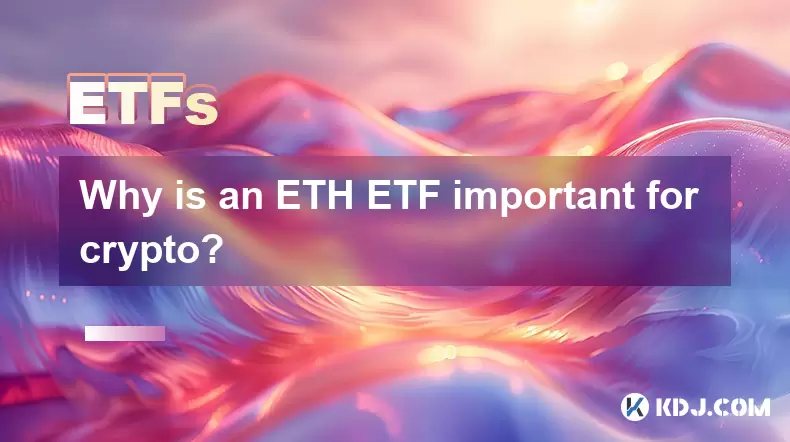
Understanding the Role of ETFs in Financial Markets
An Exchange-Traded Fund (ETF) is a type of investment fund that trades on stock exchanges, much like individual stocks. ETFs are designed to track the value of an underlying asset or index, offering investors diversified exposure without directly owning the asset itself. In traditional finance, ETFs provide liquidity, diversification, and ease of access to various markets such as equities, commodities, and bonds. When applied to cryptocurrency, particularly Ethereum (ETH), an ETH ETF can serve as a bridge between institutional finance and digital assets.
The introduction of an ETH ETF would allow investors to gain exposure to Ethereum's price movements without holding the actual cryptocurrency. This removes barriers related to wallet management, private key security, and exchange volatility, making it more accessible for retail and institutional investors alike.
Regulatory Recognition and Market Legitimacy
One of the most significant implications of an ETH ETF is its potential to signal regulatory approval and market legitimacy. Approval by financial regulators, such as the U.S. Securities and Exchange Commission (SEC), would affirm that Ethereum meets specific compliance standards. This could lead to broader acceptance of cryptocurrencies within mainstream finance.
- Regulatory endorsement often reduces skepticism among traditional investors.
- It may pave the way for other crypto-based financial instruments.
Such recognition could also result in increased confidence among banks, hedge funds, and pension funds, many of which are restricted from investing directly in digital assets due to compliance concerns.
Liquidity Enhancement Through Institutional Participation
The arrival of an ETH ETF would likely attract institutional capital that has been hesitant to enter the crypto space due to operational complexities or regulatory uncertainty. These large-scale investors typically trade in substantial volumes, thereby increasing overall market liquidity.
Higher liquidity means tighter bid-ask spreads, reduced slippage, and smoother trading experiences for all participants. It also enhances price discovery mechanisms, leading to more stable and accurate valuations of Ethereum over time.
- Institutional inflows can stabilize short-term price volatility.
- Increased trading volume supports deeper market depth.
This dynamic is not speculative but based on historical patterns observed with other ETF launches, including gold and Bitcoin ETFs in certain jurisdictions.
Accessibility and Investor Protection
For many investors, especially those unfamiliar with blockchain technology, purchasing and securely storing ETH can be daunting. An ETH ETF simplifies this process by allowing individuals to invest through familiar brokerage accounts, just like buying shares of a company.
This eliminates the need for custodial solutions, wallet management, and technical understanding of blockchain transactions. Additionally, ETF structures typically come with investor protections such as transparency, oversight, and dispute resolution mechanisms that are absent in many direct crypto investments.
- Simplified entry point for new investors.
- Enhanced protection against fraud and theft risks.
These factors collectively reduce friction in accessing Ethereum's upside potential while mitigating some of the risks associated with self-custody or unregulated exchanges.
Impact on Ethereum’s Ecosystem and Development
Beyond financial considerations, the launch of an ETH ETF could have positive ripple effects on Ethereum’s broader ecosystem. Increased demand for ETH through ETF vehicles might contribute to higher network participation, staking activity, and developer interest.
Greater economic incentives for validators could enhance network security and decentralization. Moreover, sustained demand for ETH may encourage innovation within decentralized finance (DeFi), non-fungible tokens (NFTs), and enterprise blockchain applications built on Ethereum.
- Boosted staking rewards due to increased ETH holdings.
- Encouragement of long-term development and infrastructure growth.
While the ETF does not directly influence protocol upgrades or governance, the economic environment it fosters can indirectly support Ethereum’s ongoing evolution.
Frequently Asked Questions
What differentiates an ETH ETF from a Bitcoin ETF?
An ETH ETF tracks the price of Ethereum, while a Bitcoin ETF follows Bitcoin’s price. Both offer similar benefits in terms of accessibility and regulation, but they reflect distinct market dynamics and investor sentiment toward each cryptocurrency.
Can I stake Ethereum if I own shares in an ETH ETF?
No, owning shares in an ETH ETF does not grant you actual ETH tokens, so you cannot participate in staking or earn staking rewards. The ETF provider holds the underlying ETH, and your ownership is purely financial.
Will an ETH ETF affect Ethereum’s supply or inflation rate?
Not directly. Since the ETF does not involve minting or burning ETH, it has no impact on the circulating supply or inflationary mechanics of the Ethereum network.
Are there tax implications unique to ETH ETFs compared to holding ETH directly?
Yes, the tax treatment of ETFs can differ from direct cryptocurrency holdings depending on jurisdiction. ETFs may be taxed under securities law rather than digital asset regulations, potentially altering reporting requirements and capital gains calculations.
Disclaimer:info@kdj.com
The information provided is not trading advice. kdj.com does not assume any responsibility for any investments made based on the information provided in this article. Cryptocurrencies are highly volatile and it is highly recommended that you invest with caution after thorough research!
If you believe that the content used on this website infringes your copyright, please contact us immediately (info@kdj.com) and we will delete it promptly.
- Dogecoin Price, Institutions, and the 2025 Prediction: A NYC Perspective
- 2025-07-20 22:50:12
- Subway Surfers: Unlock Characters, Master Tips & Tricks for Endless Fun
- 2025-07-20 22:50:12
- Bitcoin, Whales, and Binance: Decoding Market Moves
- 2025-07-20 22:30:13
- Tokenize Xchange, Singapore, and Digital Payments: A Shifting Landscape
- 2025-07-20 23:10:12
- Bangladesh vs. Pakistan: T20 Showdown and Shifting Sands in Crypto
- 2025-07-20 22:30:13
- Bitcoin, America, Awakening: A New Era of Crypto Confidence?
- 2025-07-20 22:55:13
Related knowledge
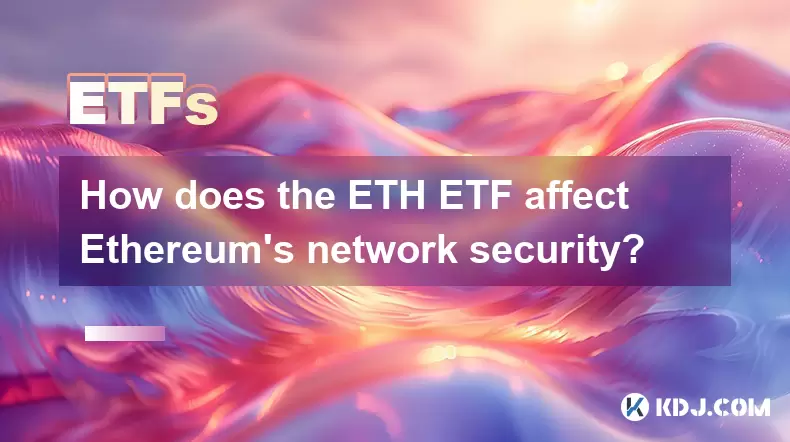
How does the ETH ETF affect Ethereum's network security?
Jul 17,2025 at 01:29pm
Understanding the ETH ETF ConceptAn Ethereum Exchange-Traded Fund (ETH ETF) is a financial product that allows investors to gain exposure to Ethereum ...
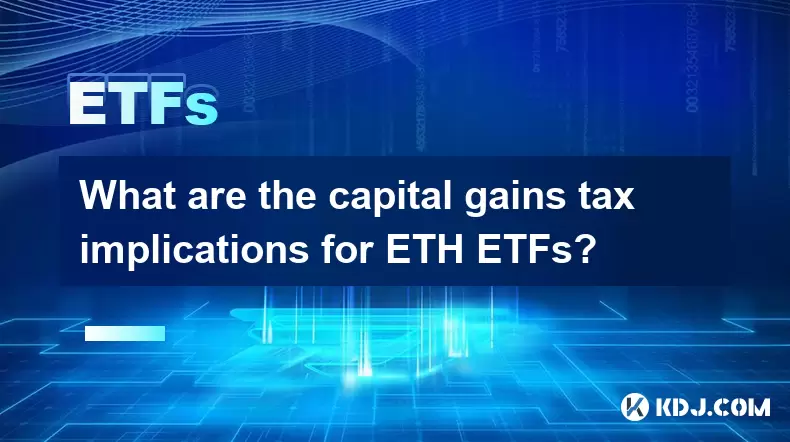
What are the capital gains tax implications for ETH ETFs?
Jul 18,2025 at 08:00am
Understanding Capital Gains Tax in Cryptocurrency InvestmentsCapital gains tax is a tax imposed on the profit realized from the sale of an asset that ...
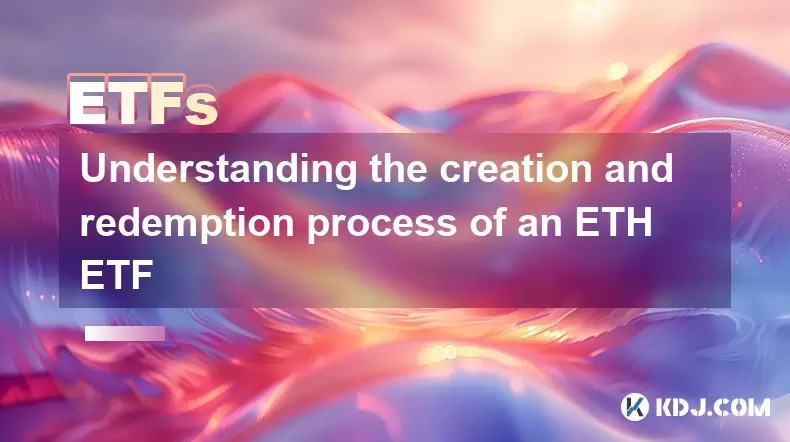
Understanding the creation and redemption process of an ETH ETF
Jul 19,2025 at 07:36am
What is an ETH ETF?An ETH ETF (Ethereum Exchange-Traded Fund) is a financial product designed to track the price of Ethereum without requiring investo...

How to analyze which ETH ETF is the best choice
Jul 19,2025 at 05:01pm
Understanding ETH ETFs and Their RelevanceEthereum Exchange-Traded Funds (ETFs) have emerged as a popular investment vehicle for those seeking exposur...
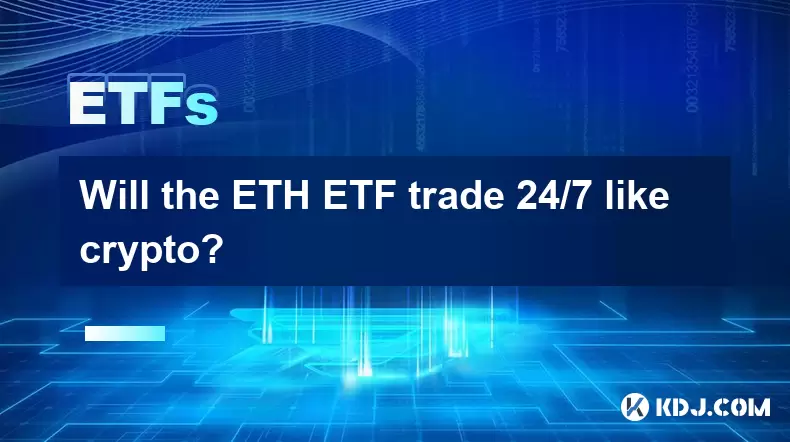
Will the ETH ETF trade 24/7 like crypto?
Jul 18,2025 at 10:00am
Understanding the ETH ETF and Its Trading HoursThe Ethereum Exchange-Traded Fund (ETH ETF) is a financial product that allows investors to gain exposu...
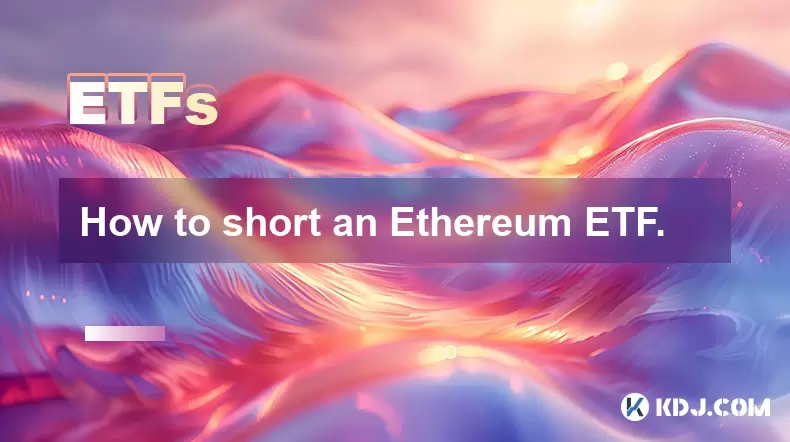
How to short an Ethereum ETF.
Jul 17,2025 at 05:43pm
Understanding the Concept of Shorting an Ethereum ETFShorting an Ethereum ETF involves betting against the price of Ethereum through a specific exchan...

How does the ETH ETF affect Ethereum's network security?
Jul 17,2025 at 01:29pm
Understanding the ETH ETF ConceptAn Ethereum Exchange-Traded Fund (ETH ETF) is a financial product that allows investors to gain exposure to Ethereum ...

What are the capital gains tax implications for ETH ETFs?
Jul 18,2025 at 08:00am
Understanding Capital Gains Tax in Cryptocurrency InvestmentsCapital gains tax is a tax imposed on the profit realized from the sale of an asset that ...

Understanding the creation and redemption process of an ETH ETF
Jul 19,2025 at 07:36am
What is an ETH ETF?An ETH ETF (Ethereum Exchange-Traded Fund) is a financial product designed to track the price of Ethereum without requiring investo...

How to analyze which ETH ETF is the best choice
Jul 19,2025 at 05:01pm
Understanding ETH ETFs and Their RelevanceEthereum Exchange-Traded Funds (ETFs) have emerged as a popular investment vehicle for those seeking exposur...

Will the ETH ETF trade 24/7 like crypto?
Jul 18,2025 at 10:00am
Understanding the ETH ETF and Its Trading HoursThe Ethereum Exchange-Traded Fund (ETH ETF) is a financial product that allows investors to gain exposu...

How to short an Ethereum ETF.
Jul 17,2025 at 05:43pm
Understanding the Concept of Shorting an Ethereum ETFShorting an Ethereum ETF involves betting against the price of Ethereum through a specific exchan...
See all articles

























